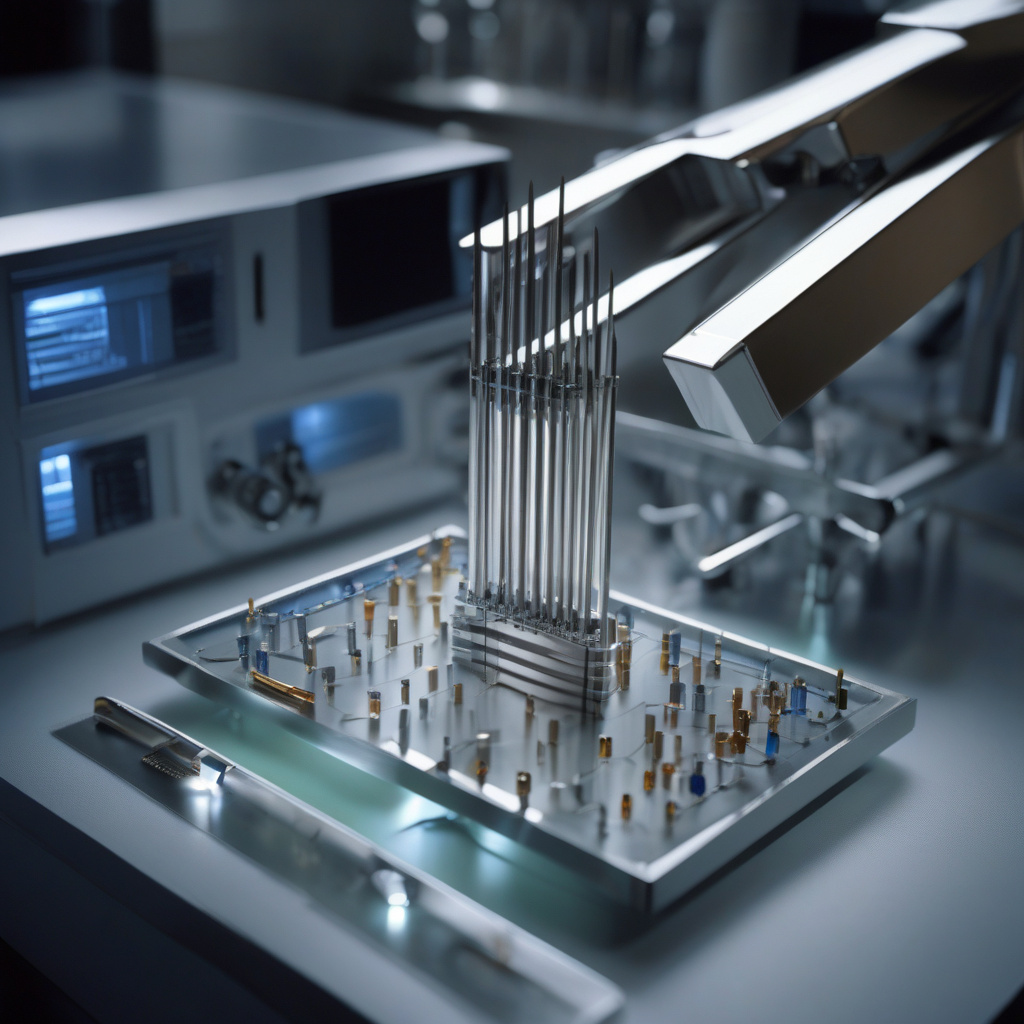“Tuning Fork”: Caltech Researchers Develop Hybrid Quantum Memory for Extended Data Storage
Caltech (California Institute of Technology) researchers have developed a hybrid quantum memory that stores information using sound waves, a breakthrough that could revolutionize quantum computing. This innovative technology allows data to be stored for significantly longer periods compared to traditional qubits, marking a significant advancement in the field of quantum data storage.
The concept behind this groundbreaking development involves using a tuning fork-like device to store and retrieve quantum data. By harnessing the unique properties of sound waves, the researchers were able to extend the storage time of quantum information by up to 30 times longer than with conventional qubits. This extended data storage capability opens up new possibilities for quantum computing applications, paving the way for more robust and reliable systems in the future.
One of the key advantages of this hybrid quantum memory is its ability to preserve the delicate quantum information without succumbing to the usual challenges of decoherence and instability. Traditional qubits are highly susceptible to external interference, leading to data loss and errors in quantum computations. However, by using sound waves as the storage medium, the Caltech researchers have found a way to mitigate these issues and enhance the overall stability of the system.
In addition to its improved data storage capabilities, the hybrid quantum memory offers enhanced flexibility and scalability for quantum computing systems. The tuning fork design allows for precise control over the quantum data, enabling researchers to manipulate and retrieve information with high accuracy. This level of control is essential for performing complex quantum operations and algorithms, making the hybrid quantum memory a valuable asset for future quantum computing endeavors.
Furthermore, the use of sound waves in quantum data storage opens up new possibilities for interdisciplinary research and collaboration. By bridging the gap between quantum mechanics and acoustics, the Caltech researchers have demonstrated the potential for innovative solutions that leverage the strengths of both fields. This cross-disciplinary approach not only advances our understanding of quantum phenomena but also paves the way for novel applications in other scientific domains.
As quantum computing continues to evolve, breakthroughs like the hybrid quantum memory developed by the Caltech researchers will play a crucial role in shaping the future of technology. By pushing the boundaries of conventional data storage methods and exploring new avenues for innovation, scientists are unlocking the full potential of quantum systems and paving the way for unprecedented advancements in computing power and efficiency.
In conclusion, the development of the hybrid quantum memory represents a significant milestone in the field of quantum computing. By harnessing the power of sound waves to store and retrieve quantum data, researchers at Caltech have demonstrated a novel approach that offers extended data storage capabilities and enhanced system stability. As this technology continues to mature, we can expect to see further advancements that will revolutionize the way we process and utilize quantum information in the years to come.
#QuantumComputing, #Caltech, #HybridQuantumMemory, #DataStorage, #SoundWaves












